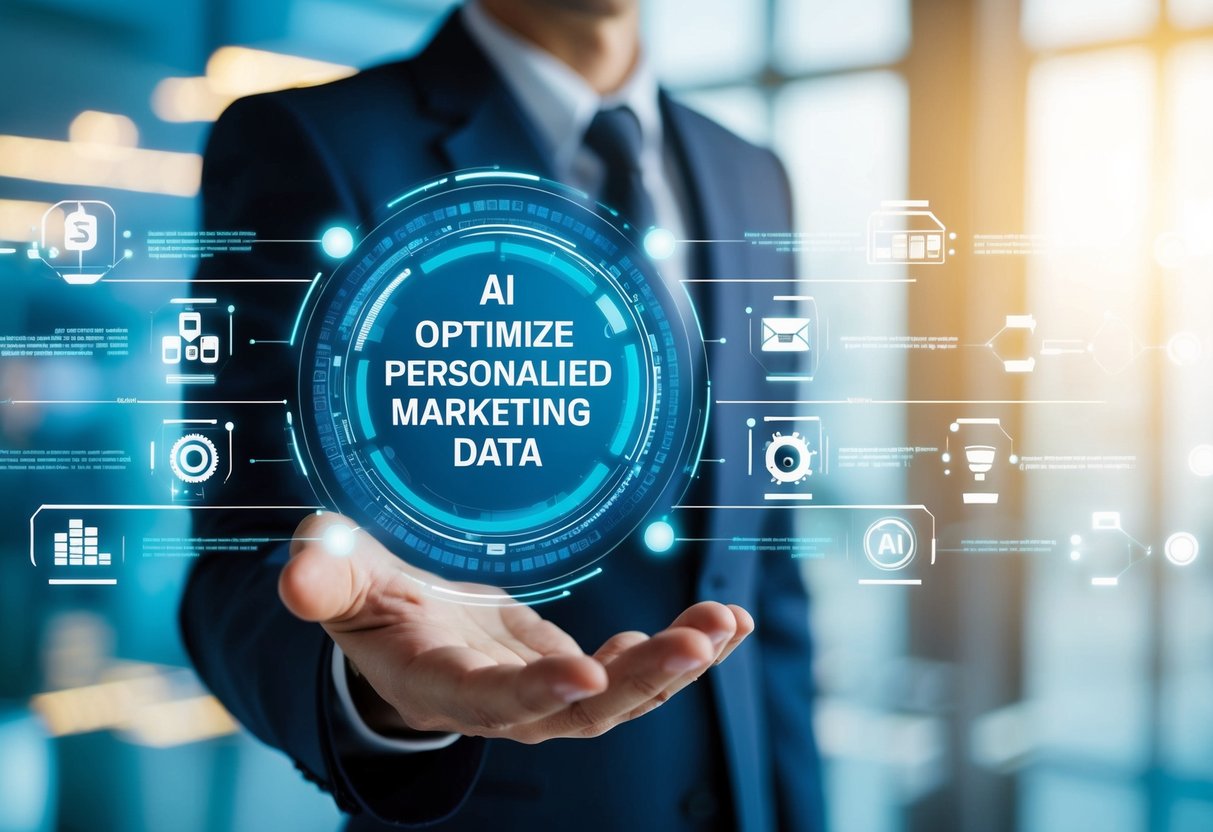
Customer Engagement and Conversion Optimization

By integrating AI-driven solutions, businesses can boost customer engagement and conversion rates. Leveraging AI, marketers utilize advanced tools for personalized messaging, optimizing interactions across email and social media platforms.
Maximizing Engagement with AI-Powered Tools
AI-powered tools transform how businesses approach customer engagement. These tools analyze data to tailor interactions based on individual preferences and behaviors. For instance, chatbots can provide instant responses to customer inquiries, enhancing user experience and keeping consumers engaged. Predictive analytics also enable businesses to anticipate customer needs and adjust strategies accordingly. This targeted approach ensures that marketing efforts resonate more deeply with the audience, fostering greater connection and loyalty. The sophistication of AI allows for real-time adjustments, ensuring communications are effective and timely, thus optimizing the path to conversion.
Conversion Rate Improvements through Personalized Messaging
Personalized messaging plays a crucial role in converting potential customers into loyal clients. AI technologies analyze customer data to create tailored content that speaks directly to the interests and needs of individuals. This can manifest as product recommendations based on browsing history or personalized offers that reflect past purchases. By delivering relevant content, businesses see improved engagement metrics, including increased open and click-through rates. Consistent personalization across various touchpoints helps build trust and rapport with customers, ultimately leading to higher conversion rates. AI-driven insights allow businesses to refine their messaging strategies continually, optimizing them for better results.
Enhancing Email and Social Media Marketing
AI significantly enhances the effectiveness of email and social media marketing. In email campaigns, AI algorithms determine optimal send times and subject lines, increasing the likelihood of the message being opened and read. Segmenting audiences based on behavior allows for more targeted communication. On social media, AI analyzes engagement patterns, enabling businesses to craft content that resonates with followers. Automated responses and content scheduling ensure that businesses remain active and responsive. Through AI, marketing efforts become more consistent and coherent, strengthening brand presence and offering seamless customer experiences across all platforms. Social listening tools powered by AI help in identifying trends and sentiments, further refining marketing strategies.
Ethics and Privacy Considerations in AI Marketing
AI-driven personalized marketing significantly enhances customer engagement but raises critical ethical and privacy issues. Balancing customer personalization with stringent data privacy, adhering to the GDPR, and maintaining ethical AI practices are imperative in today’s digital landscape.
Balancing Personalization with Data Privacy
Achieving personalization while safeguarding data privacy is a complex challenge. Businesses must judiciously gather and utilize customer data without infringing on privacy rights. This requires transparent data collection policies and gaining explicit consent from users. The tension between offering tailored experiences and respecting customer privacy demands careful navigation to ensure trust and loyalty.
Marketers must prioritize data security and employ robust mechanisms to prevent unauthorized access. Encryption and anonymization techniques are essential in protecting customer information. Furthermore, providing customers with control over their data, such as opting out of data collection, enhances transparency and trust.
GDPR and Data Protection Regulations
The General Data Protection Regulation (GDPR) significantly influences AI marketing practices. This regulation mandates strict data protection and privacy measures for companies operating within or targeting the EU. Organizations must ensure data processing is lawful and transparent, and users should easily access or delete their data.
GDPR compliance entails maintaining detailed records of data processing activities and conducting impact assessments. Non-compliance can lead to severe fines and reputational damage. Therefore, companies are investing heavily in ensuring their systems and processes align with these requirements. This focus on compliance not only prevents legal issues but also builds consumer trust.
Ethical Considerations and Responsible AI
Ethical considerations play a crucial role in AI-driven marketing. Companies must commit to using AI responsibly, avoiding biases that can arise in algorithms. AI systems can unintentionally perpetuate or even introduce biases if not carefully monitored and adjusted.
Continual evaluation of AI algorithms is necessary to identify and mitigate biases. Promoting diversity in data sets helps ensure these systems provide fair outcomes. Engaging interdisciplinary teams, including ethicists and technologists, strengthens ethical AI development. Businesses that prioritize responsible AI practices not only adhere to ethical standards but also gain competitive advantages by fostering customer confidence.